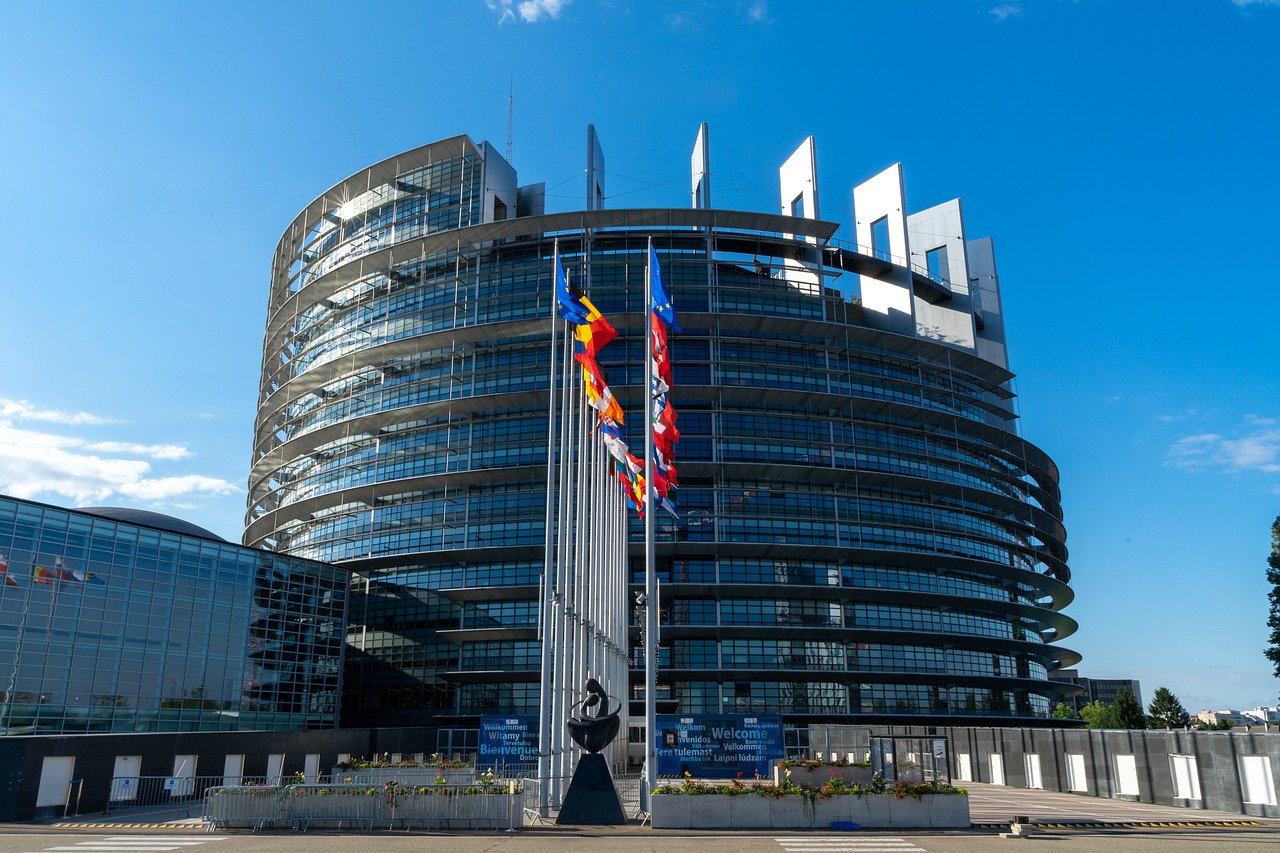Featured
CBAM: What Is Known and What Is Not Known to Date
The European Union’s Carbon Border Adjustment Mechanism (CBAM) aims to allow the EU to impose its environmental standards on foreign companies exporting to the EU. But what will this mean for the companies involved? What are the advantages and disadvantages of this measure? And how will Morocco, as an exporting country, be affected by this measure?

The Carbon Border Adjustment Mechanism (CBAM) of the European Union (EU) is a subject that is generating a lot of interest and heated debate within the economic sphere. As its entry into force is imminent, it is important to take stock of what we know and what we do not know yet.
Read more on the subject and find the latest economic news of the day with the Born2Invest mobile app.
What we know about CBAM
For the time being, what is known is that this so-called carbon adjustment mechanism at European borders aims to reduce the greenhouse gas emissions of foreign companies exporting to the EU. We also know that exporting companies will have to demonstrate competence in calculating carbon content, provide financial guarantees, submit an annual CBAM declaration, and purchase sufficient CBAM certificates at the time of import. As Yves Melin, a partner at Reed Smith, pointed out during a webinar co-hosted by ASMEX and the Belgian-Luxembourg Chamber of Commerce in Morocco (CCBLM) on April 12, 2023, “as of October 2023, it will be mandatory to obtain an authorization to import products subject to CBAM.
Moroccan producers and traders who import Moroccan products into the EU will have to find an authorized declarant or become authorized themselves by the authorities of the importing member state in order to continue to import steel, aluminum, and other products subject to CBAM. The authorized registrant will have to demonstrate competence in calculating the carbon content of imported goods and provide financial guarantees that can be used by the authorities of the importing Member State upon first request. Each year, the authorized declarant will have to submit a CBAM declaration that will include all the imports made during the previous year as well as the certificates purchased to be able to place these goods on the European market.
This CBAM declaration will be used by the authorities of the Member States to verify that the required number of CBAM certificates has been purchased at the time of placing on the market. It is also known that companies that emit less carbon will be able to benefit from a competitive advantage and greater access to the European market.
What we don’t know about CBAM
One of the things we don’t know at the moment, in the concrete application of the CBAM, is the threshold of greenhouse gas emissions above which an economic activity will be considered too polluting, because to date, this has not yet been defined. This means that exporting companies do not yet know exactly what carbon emission requirements they will have to meet in order to export their products to the European Union. Therefore, the publication of the EU implementing regulation for the scheme is awaited.
“The implementing regulation will provide additional details, including how the price of carbon paid in a third country can be valued at the border,” explains Yves Melin.
Indeed, although the text of the regulation is known and the political agreement was finalized last December, the publication of the final text is scheduled for May 2023, after it has been translated into the 24 languages of the Union. At that time, the European Commission will communicate a draft implementing regulation that will explain how the provisions of the basic regulation will be implemented. In October 2023, the regulation will enter into force, but only certain interim provisions that relate to the declaration, authorization, submission, and annual reporting mechanics. There will be no tax obligation for the purchase of CBAM certificates as of October 2023.
This obligation will take effect on January 1, 2026. There will therefore be a run-in period during which registrants will be allowed to submit their declarations. The European authorities will review the declarations and any errors can be corrected before they have a fiscal impact. However, it is likely that the threshold for greenhouse gas emissions will be set high to encourage companies to do so. Experts believe that this could have a significant impact on exporting companies, which may have to invest in cleaner technologies or change their production processes to meet these requirements.
For his part, Melin believes that “given that the real price European producers pay for their greenhouse gas emissions is currently low, the price they will have to pay on January 1st, 2026, for the products covered will be low as well. Whatever the decision, it is important that exporting companies start preparing for CBAM now by assessing their carbon footprint and looking for ways to reduce their emissions. This will not only allow them to comply with CBAM requirements but also to gain a competitive advantage in the European market by offering more environmentally friendly products.
Moreover, while the costs to exporting firms are not yet clear, some experts believe they could be significant. Ultimately, despite the fact that the Moroccan Minister of Industry regularly insists that CBAM is “an opportunity for Morocco,” the implications for the Kingdom as an exporting country are not yet fully known.
__
(Featured image by USA-Reiseblogger via Pixabay)
DISCLAIMER: This article was written by a third party contributor and does not reflect the opinion of Born2Invest, its management, staff or its associates. Please review our disclaimer for more information.
This article may include forward-looking statements. These forward-looking statements generally are identified by the words “believe,” “project,” “estimate,” “become,” “plan,” “will,” and similar expressions. These forward-looking statements involve known and unknown risks as well as uncertainties, including those discussed in the following cautionary statements and elsewhere in this article and on this site. Although the Company may believe that its expectations are based on reasonable assumptions, the actual results that the Company may achieve may differ materially from any forward-looking statements, which reflect the opinions of the management of the Company only as of the date hereof. Additionally, please make sure to read these important disclosures.
First published in LES ECO.ma, a third-party contributor translated and adapted the article from the original. In case of discrepancy, the original will prevail.
Although we made reasonable efforts to provide accurate translations, some parts may be incorrect. Born2Invest assumes no responsibility for errors, omissions or ambiguities in the translations provided on this website. Any person or entity relying on translated content does so at their own risk. Born2Invest is not responsible for losses caused by such reliance on the accuracy or reliability of translated information. If you wish to report an error or inaccuracy in the translation, we encourage you to contact us.

-

 Biotech2 weeks ago
Biotech2 weeks agoNew Molecular Clues Explain Aggressive Neuroblastoma and Point to Targeted Treatments
-

 Business15 hours ago
Business15 hours agoTopRanked.io Weekly Affiliate Digest: What’s Hot in Affiliate Marketing [EKSA Affiliate Program Review]
-

 Fintech1 week ago
Fintech1 week agoSwissHacks 2026 to Launch Inaugural Swiss FinTech Week in Zurich
-

 Impact Investing2 weeks ago
Impact Investing2 weeks agoClimate Losses Drive New Risk Training in Agriculture Led by Cineas and Asnacodi Italia
























